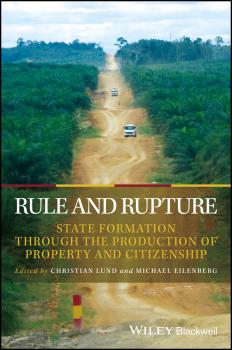ТОП просматриваемых книг сайта:
Christian Lund
Список книг автора Christian LundАннотация
The Politics of Possession investigates how struggles over access to resources and political power constitute property and authority recursively. Such dynamics are integral to state formation in societies characterized by normative and legal pluralism. Includes some of the latest theoretical work on the dynamics of access and property and how they are joined to questions of power and authority Explores how access to resources is often contested and rife with conflict, particularly in post-colonial and post-socialist countries Offers a thought-provoking approach to the study of everyday processes of state formation Shows how the process of seeking authorization for property claims works to legitimize the authorizers, and the efforts undertaken by politico-legal institutions to gain legitimacy underpin and undermine various claims of access and property Contributors explore from a wide empirical compass of original research spanning Latin America, Africa, South-East Asia, and Eastern Europe
Rule and Rupture. State Formation Through the Production of Property and Citizenship - Christian Lund
Аннотация
Rule and Rupture – State Formation Through the Production of Property and Citizenship examines the ways in which political authority is defined and created by the rights of community membership and access to resources. Combines the latest theory on property rights and citizenship with extensive fieldwork to provide a more complex, nuanced assessment of political states commonly viewed as “weak,” “fragile,” and “failed” Contains ten case studies taken from post-colonial settings around the world, including Cambodia, Nepal, Indonesia, Afghanistan, Rwanda, Somalia, Democratic Republic of Congo, Colombia, and Bolivia Characterizes the results of societal ruptures into three types of outcomes for political power: reconstituted and consolidated, challenged, and fragmented Brings together exciting insights from a global group of scholars in the fields of political science, development studies, and geography


